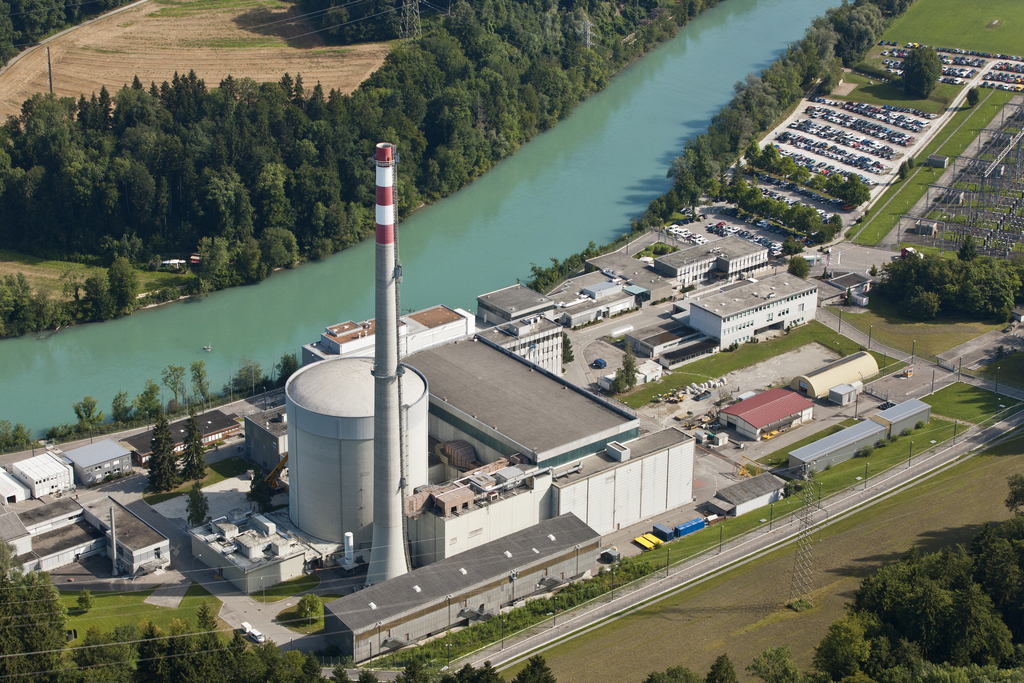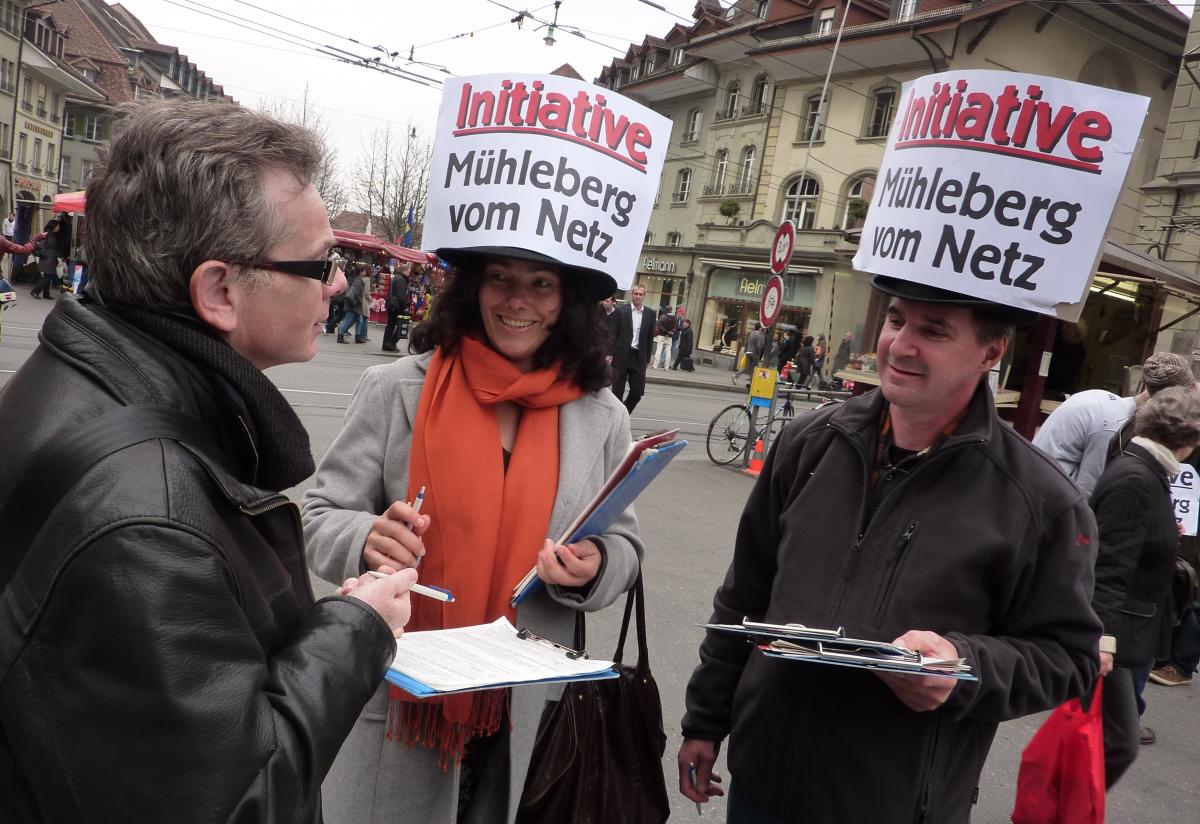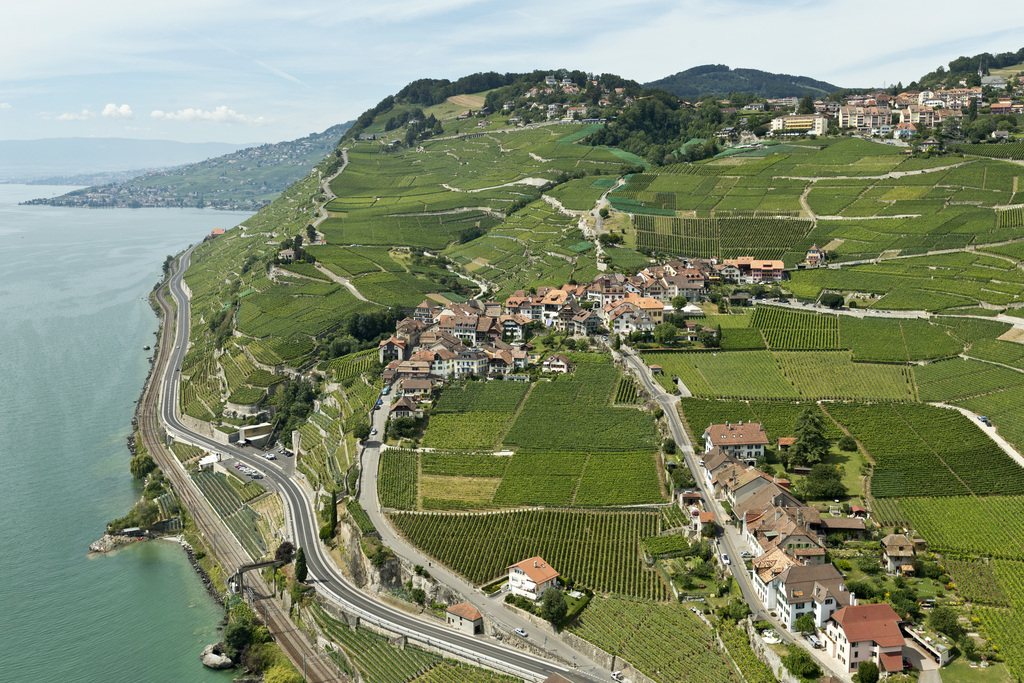Mühleberg nuclear plant given stay of execution

Switzerland’s second oldest nuclear power plant will remain operational until 2019. Voters in canton Bern on Sunday rejected a proposal to shut down the Mühleberg power plant, shortening its lifespan by several years.
Just over 63% of voters rejected an initiative by a group of citizens, according to officials results.
It was the first public vote on nuclear energy after the government in 2011 decided to phase out nuclear energy, by gradually decommissioning the country’s five nuclear plants between 2019 and 2034.
The Mühleberg plant was opened in 1972, just 15km outside the capital, Bern. Together with the four other reactors they generate just over 40% of Switzerland’s electricity.
Following the Fukushima disaster in Japan in March 2011, the government took the decision to look to alternative technologies. It aims to promote hydroelectric power, renewable energy as well as combined gas plants and energy saving methods.
Vaud: Heritage
A counter proposal to reduce the scale of the zones for building in the Lake Geneva region and to provide financial support to winegrowers to help maintain their terraces in Lavaux was approved by 68.5% of voters.
Neuchâtel: Wind power
Voters backed by 65% plans for five zones for wind farms comprising a total of 59 turbines, equal to 20% of the energy needs in canton Neuchâtel.
Solothurn: Anti hooligans
More than 86% of voters in canton Solothurn came out in favour of cracking down on violent fans at football and icehockey matches. Solothurn is the 16th canton (out of 26) to join an accord to increase police cooperation between the cantons.
Further initatives
Opponents of nuclear energy say the Mühleberg site has been ready for closure for a long time. Groups, including Greenpeace, are concerned about the stability of the reactor as cracks in the core shroud started forming in the 1990s. They were caused by steel corrosion from coolant.
However, supporters said an early closure could prompt massive financial compensation claims.
Since 2013, the local BKW/FMB power company has had to keep to a strict schedule of repairs and modernisations, demanded by the Swiss Federal Nuclear Safety Inspectorate.
A further initiative against nuclear energy is pending. In 2012 the Green Party handed in the necessary signatures for a proposal to set caps on the lifetimes of existing nuclear reactors and imposing a ban on the construction of new ones

In compliance with the JTI standards
More: SWI swissinfo.ch certified by the Journalism Trust Initiative


You can find an overview of ongoing debates with our journalists here. Please join us!
If you want to start a conversation about a topic raised in this article or want to report factual errors, email us at english@swissinfo.ch.